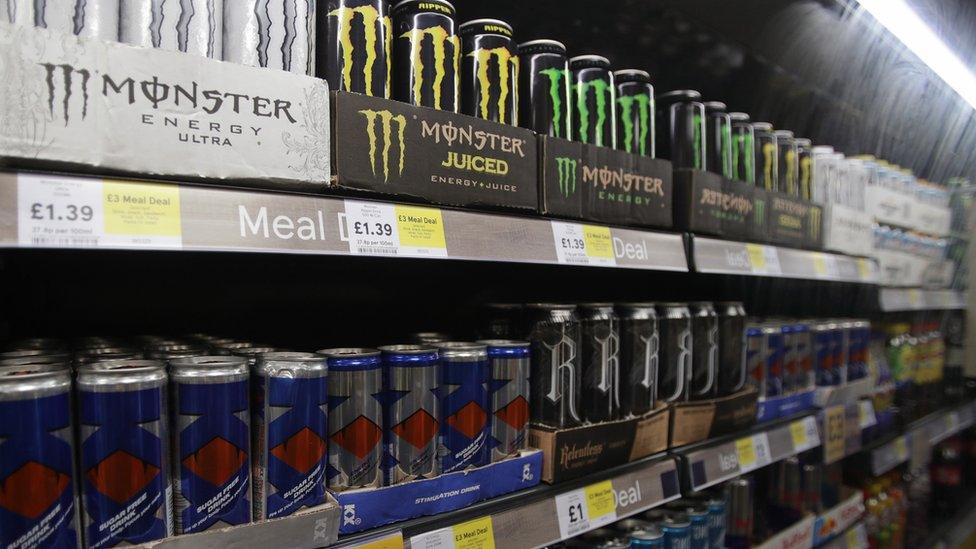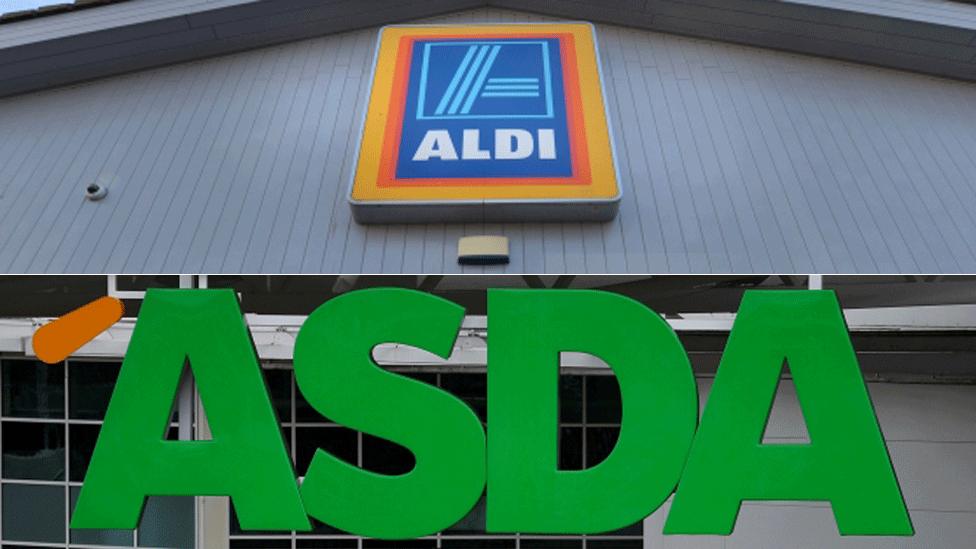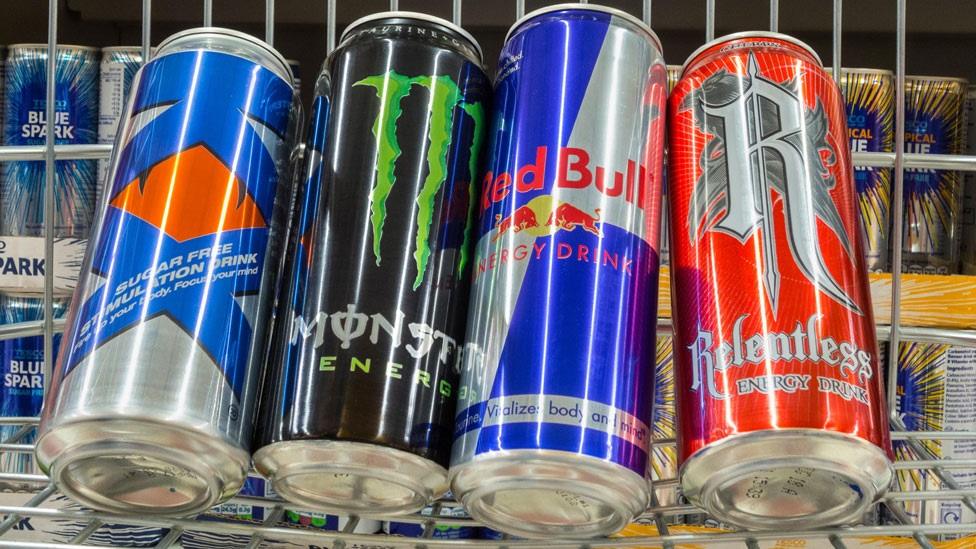Energy drinks: UK supermarkets ban sales to under-16s
- Published
- comments

Retailers will ban the sale of energy drinks containing more than 150mg of caffeine per litre
Sales of energy drinks to children under 16 have been banned in most major UK supermarkets, amid concerns about high levels of sugar and caffeine.
Boots is also joining supermarkets such as Asda, Waitrose, Tesco and the Co-op in introducing the rule.
Retailers will limit sale of energy drinks containing more than 150mg of caffeine per litre to under-16s.
Co-op said it recognised the "growing concern about the consumption of energy drinks" among children.
You may also like:
Other supermarkets introducing the voluntary ban include Aldi, Lidl, Sainsbury's and Morrisons. Boots is the first retailer to partake that is not a supermarket.
The Co-op, Aldi and Lidl implemented the change on 1 March, while Morrisons, Waitrose, Asda and Boots put the rule in place on 5 March.
A Boots spokesperson said: "Helping our customers to live healthier lives has always been our core purpose.
"We have listened to the growing public concern about young people consuming these high sugar and highly-caffeinated drinks."
Although Tesco has announced its decision to follow, it will not implement the change until 26 March.
A welcome ban
The move follows calls by campaigners for a complete ban on energy drinks, and after MP Maria Caulfield asked Prime Minister Theresa May to consider a UK-wide ban earlier this year.
Celebrity chef Jamie Oliver, who led the #NotForChildren campaign, external, welcomed the news and took to Twitter to celebrate the supermarkets that had "done the right thing".
Allow X content?
This article contains content provided by X. We ask for your permission before anything is loaded, as they may be using cookies and other technologies. You may want to read X’s cookie policy, external and privacy policy, external before accepting. To view this content choose ‘accept and continue’.
The NASUWT teaching union has also campaigned for restrictions on energy drinks sales to children, and called on schools to ban high-caffeinated beverages from their premises.
NASUWT's general secretary, Chris Keates, previously told the BBC: "The very high levels of caffeine and sugar these drinks contain impact adversely on pupil behaviour in schools and teachers are left to deal with the fallout.
"There is a chronic lack of awareness about the effects and long-term health impacts of these drinks which many pupils and parents think are just another soft drink."
- Published19 January 2018

- Published4 January 2018
